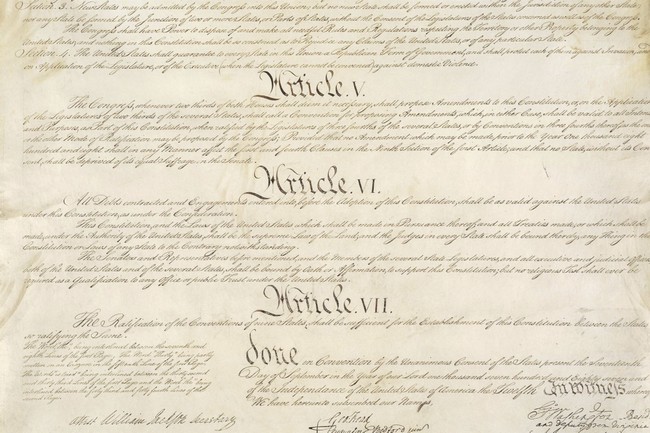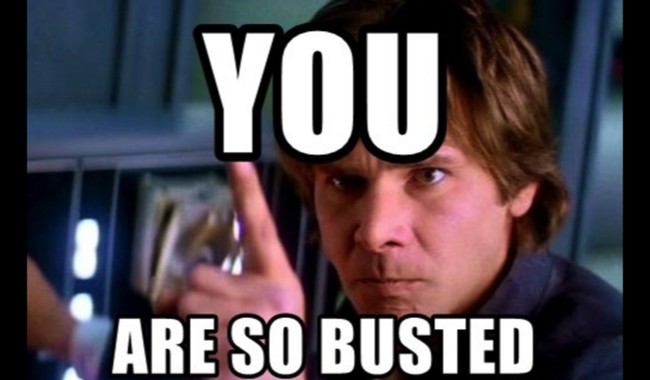ARTICLE AD BOX
SOFIA — Bulgaria’s election next month is boiling down to the role of a sanctioned tycoon and his capacity to undermine the nation’s fragile democracy.
To his critics — particularly from reformist, anti-corruption parties — media mogul and MP Delyan Peevski has come to epitomize Bulgaria’s captured state, in which shadowy oligarchs, spies and crime gangs have wrapped their tentacles round key core institutions in the EU and NATO country.
Nikolay Denkov, prime minister until last month, describes Peevski — sanctioned by the U.S. and the U.K. — as the “biggest evil” to befall the Balkan nation of 6.5 million people.
It is little wonder, then, that one of the chief political battles around the June 9 election hinges on Peevski’s influence over the courts and the security service. Hristo Ivanov, head of the “Yes, Bulgaria” party, argues the election must break Peevski’s grip and warns that the “functioning of the Republic” is at stake.
Taking on Peevski, however, is no easy matter.
Former Prime Minister Kiril Petkov, from the anti-corruption “We Continue the Change” party spoke to POLITICO on the day of his campaign launch in Sofia, and it was clear he had just run into a Peevski-shaped obstacle.
Gesticulating by the window of his campaign office, he spoke on the phone to a representative of a billboard company that refused to hang up a run of posters he’d just commissioned.
“What do you mean you can’t?” said Petkov. “We’ve paid you for 500 posters.”
The problem was what was depicted on the campaign poster: It showed a cartoon of Peevski as a stubble-cheeked footballer-cum-pig with his foot on a pumpkin.
The poster was a microcosm of the nation’s politics. The “pumpkin” is the nickname of former Prime Minister Boyko Borissov, whose center-right GERB party is comfortably leading the polls. (Pumpkin is Bulgarian slang for a large but hollow head.) With the warning “This is who wins if you don’t vote” the message was clear: Peevski has Borissov under his boot.
Petkov’s problem is that no-one wants to upset a power-broker whose influence is ubiquitous across the media, including in the advertising sector.
The sensitivity over posters reared up again on Tuesday when GERB successfully lobbied the election commission to force the taking down of “We Continue the Change” posters featuring mugshots of Borissov and Peevski, presenting them as effectively one-and-the-same as choice for prime minister.
 A cartoon of Delyan Peevski as a footballer-cum-pig with his foot on a pumpkin. | We Continue the Change
A cartoon of Delyan Peevski as a footballer-cum-pig with his foot on a pumpkin. | We Continue the ChangeBorissov’s back
Borissov’s GERB is currently leading in the polls and is set for about 27 percent of the vote. Peevski — while himself not a Muslim — is now leading Bulgaria’s ethnic Turkish party, the DPS, which is on course for about 15 percent. The two men are widely seen as politically aligned in the election campaign but the big question is which of them is really in charge, and who will run the show if they manage to cobble together a coalition after the election. A return to the premiership for former firefighter and bodyguard Borissov is far from impossible.
“There is a thin and embedded deal between Borissov and Peevski, which is that Mr. Peevski has a significant control over judiciary and the security services and Mr. Borissov has old sins, that he is afraid [will be punished] if there are real working courts and prosecutors,” Petkov said. “So Borissov brings the votes and Peevski guarantees that the current institutions do not pose risks.”
Public frustration with corruption runs deep, and anger about Borissov and Peevski helped fuel massive anti-mafia protests in 2020. The challenge for the reformers, however, is that both GERB and the DPS can rely on stable voting blocs thanks to sweeteners, patronage networks and regional fiefdoms, where people feel their jobs depend on mayors and other officials from the parties.
Both Borissov and Peevski are cautious about publicly declaring an alliance but the contours of a deal are being mapped out. The DPS press department put out a cheery release — tagged “Promised and delivered!” — on how the two successfully co-operated to guarantee jobs for energy workers and miners. Borissov also defended Peevski against the “biggest evil” jibe from Denkov.
Additionally, Borissov is candid about the country’s political arithmetic, noting that a numerically reliable group of Turkish and other Muslim voters is exactly why it makes sense to ally with Peevski. “We have always worked with DPS over the years because they are part of the system,” he said, according the Bulgarian Telegraph Agency (BTA).
In a classic game of political smoke and mirrors, however, Peevski claims he’s not an automatic supporter of Borissov’s return to power. “Who’s said that Borissov necessarily has to rule?” the tycoon quipped, again trying to project the idea that he’s the one in charge of the duo — with his boot on the pumpkin, as Petkov’s poster would depict it.
GERB did not respond to POLITICO’s request for comment.
Magnitsky list
U.S. and U.K. sanctions against Peevski and other corruption networks are remarkable because the EU has largely taken a look-the-other-way stance to large-scale graft in Bulgaria, even though much of it has involved the theft and abuse of EU funds. In a much-criticized propaganda coup for Peevski, who is seeking to shake off the sanctions’ stigma, he held court with EU ambassadors this month in what was described by the DPS as a “cordial” meeting.
In contrast to Brussels’ kid gloves, Washington directly accuses Peevski under the Magnitsky Act of running bribery schemes and exerting “control over key institutions and sectors in Bulgarian society.” Britain’s reasoning for its sanctions is similar.
Peevski is appealing against the Magnitsky sanctions, saying they were imposed without evidence.
The fight over who controls the judiciary and spy service is central to the struggle over the future of Bulgarian democracy. The long-running grievance among anti-corruption campaigners is that the security services and courts are used for extortion shake-downs and that no leading mob godfather is ever convicted. Denkov says the country is now facing its sixth general election in three years because Peevski undermined the reformists’ attempts to root out corruption in his government — a coalition between GERB and the reformists.
“A lot of the problems we see are precisely because he started commanding the processes. He began to command GERB, in fact he wanted elections and we are going to elections because of him,” Denkov complained last month, in remarks also cited by BTA.
 As the election race moves into its final stretch, there are also signs Boyko Borissov is trying to split the two main reformist parties away from each other. | Nikolay Doychinov/AFP via Getty Images
As the election race moves into its final stretch, there are also signs Boyko Borissov is trying to split the two main reformist parties away from each other. | Nikolay Doychinov/AFP via Getty ImagesFlipping that narrative on its head, Peevski casts himself as the man who will save Bulgarian institutions from meddlesome reformists. “I will certainly not allow them to destroy the Bulgarian [secret] services, to destroy the Bulgarian justice system. Here, I am announcing it because you always say that there is something behind the scenes. No! I will not allow them to destroy the state. Not I, Delyan Peevski!”
A crafty political operator who is looking to maneuver to the mainstream, Peevski is also closely co-ordinating with Borissov to present a pro-EU and pro-NATO front against Bulgaria’s President Rumen Radev, who leans toward the Kremlin. “Our unprecedented support for Ukraine is the result of our firm conviction as Euro-Atlanticists,” he said recently, slamming Moscow’s “inhuman aggression.”
Divide and rule
As the election race moves into its final stretch, there are also signs Borissov is trying to split the two main reformist parties away from each other, suggesting he would work with Ivanov’s “Yes, Bulgaria” rather than Petkov’s “We Continue the Change.”
Flinging as much political mud as he can, Borissov is trying to accuse Petkov’s party of being close to the pro-Kremlin far-right Revival party — which is a wild accusation because Petkov’s government played a leading role in arming Ukraine.
“The ‘[We continue the]Change’ is nothing progressive, nothing new, but a fight for power,” Borissov lamented at a campaign event in the southern city of Haskovo.
Still, Ivanov himself has expressed objections to co-operating with Peevski’s involvement anywhere within the state, saying he must be removed. “This is the fundamental issue for the functioning of the Republic. This is the return of the empire of fear,” the former justice minister told Bulgarian National Radio.
Borissov bristles at that suggestion that he will simply embrace mafia culture: “I am a European politician, I don’t want a return to the mobster years,” he said, according to comments cited by Mediapool.
At the GERB rally in Haskovo, against a soundtrack of AC/DC’s Thunderstruck, Alben Mandjukov, 64, a former director of an energy firm, said he believed there was hope for Bulgaria’s future, even if people are embittered and divided more than ever.
“This overflowing room demonstrates that things will really start going in the right direction,” Mandjukov told POLITICO. “Three years ago things took a turn… Where’s the proof GERB was mired in corruption? If no one is charged why should I believe it?”
GERB’s opponents point out there are good reasons why no-one ever seems to be charged.
.png)
 9 months ago
5
9 months ago
5








 English (US)
English (US)